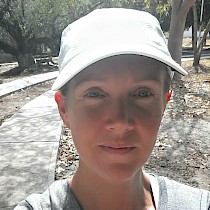Bienes Raíces en Playa Del Carmen y Tulum Mexico | Tulum

Real Estate for sale in ...
Playa Del Carmen Real Estate Listings
Get Notified when properties are added in Tulum for all prices .
Playa Del Carmen Real Estate Listings
300+ Playa Del Carmen Real Estate Homes, Lots, Condos for Sale
Sorry, the filter didn't match any available listing
Tulum
The Tulum Pueblo (downtown), 82 miles south of Cancun, has remained tied to its Mayan origins yet has been adopted and influenced by many international visitors. You can eat a gourmet authentic Italian dinner and then experience a Mayan folkloric dance followed by sipping Cosmopolitans at a hip nightclub.
Tulum Pueblo has gone from a modest local Mayan village, to the choice destination for backpackers and hippies, and now the new generation of Tulum is turning towards more upscale and modern stores, restaurants, experiences.
$5 per/night hammocks
Tulum Beachfront is similar in culture, yet still lost in time and nature offering the only ancient Maya Port and its ruins and miles of the most powdery white sand beaches on the coast. Tulum Beach offered $5 per night hammocks under an open palapa 15 years ago, which have now been replaced by some humble and some luxurious small beachfront hotels. Tulum is ecologically minded and even the fanciest accommodations have a touch of rustic, which makes it so enchanting and separate from the rest. Tulum Beach has been growing in leaps and bounds with new hotels and small resort projects, yet still gives the sense of being in another world.
Tulums classic period
The earliest day discovered in the site is A.D. 564, an inscription on stelae. This puts Tulum within the Classic Period, though we know that its heyday was much later on, 1200-- 1521 A.D., throughout the Late Post-classic Period. Tulum was the main area for the Maya's extensive trade network with both maritime and land routes assembling below. Artifacts located in or near the site confirm contact with Central Mexico and also Central America. Archeologists located copper rattles and rings from the Mexican highlands; flint as well as ceramics from the Yucatán, and jade from Guatemala. Tulum was the center for worldwide trade as well as responsible for the circulation of items right into the Yucatan via Coba, Chichen Itza as well as linking negotiations. Tulum was thought to likewise be a religious center for clergymans with the walls protecting the sacred leaders. Excavators have proof that the population was killed off by the Spaniards when they presented Old World illness right into the area as a means to damage the native population. Tulum stayed lived in concerning 70 years after the Occupation, when it was lastly deserted. Documents of this demise can be located in the writings of Friar Diego de Landa's Observations on the Yucatan Peninsula. Local Maya remained to visit the holy places to melt incense and pray up until the late 20th century.
In the Yucatec language, Tulum suggests "wall", describing the big barrier that surrounds the settlement. In the Mayan language, Tulum was called Zama, meaning "dawn," an appropriate name given its eastern place.
It appears "Tulum" is the name offered to the site by explorers Stephens as well as Catherwood in 1841. Stephens and also Catherwood saw Tulum just before the start of the Caste Battle in 1847, long after the city was deserted. Their visit to Tulum is laid out in their famous book "Cases of Traveling in Yucatan". It is very important to note that Juan José Gálvez is actually credited with Tulum's rediscovery in 1840.
Interesting Mayan ruins dot the Mexican landscape, and Tulum has the good fortune of real estate a variety of well-preserved ruins going back to the 13th century. Plan a daytrip to go to the ruins as well as put in the time to effectively check out the many websites which have dramatic cliff top views of the Yucatán Peninsula coast and also the turquoise waters of the Caribbean. Highlights include the Excellent Palace, Temple of the Frescoes, and the God of Winds Temple, which sits set down at the entry of Tulum's bay.
Adventure awaits
The location bordering Tulum's ruins is specked with cenotes, gigantic sinkholes where a cave ceiling fell down. The sinkholes are generally quite deep, filled with cerulean water, as well as suitable for swimmers and also divers to check out. El Gran Cenote is among the areas most prominent, so plan to get there very early as well as defeat a few of the late-day groups. Site visitors could swim, snorkel and also dive while admiring geologic attributes such as stalagmites as well as stalactites.
A designated UNESCO World Heritage Site, the Sian Ka'an Biosphere Preserve shields an abundant bounty of flora and fauna on the Yucatan Peninsula's east shore. While seeing the biosphere, visitors might spy some of the 300 species of birds that inhabit the area, as well as sight exotic woodlands, a hand savannah, marshes, shallows, and also mangroves. Implying "Origin of the Sky," Sian Ka'an is consisted of 1.3 million acres of land stretching along 74 miles of beautiful coast.
